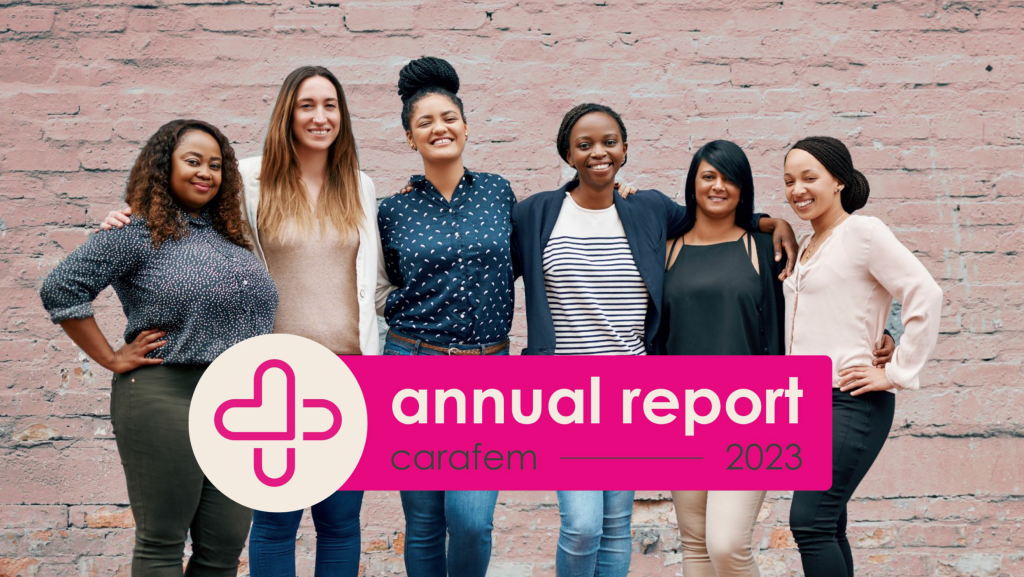
Look for these early signs of pregnancy
So, you had unprotected sex or your birth control didn’t go according to plan and you are feeling a bit different lately. If you think you might be pregnant, first and foremost, take a deep breath. We’re here to help so we pulled together this list as a way to answer some common questions for those who think they may be pregnant.
Just keep in mind, all bodies are different so not everyone will experience all of these signs of early pregnancy. Quick PSA. If you are concerned about pregnancy and want to talk, we can be reached at (855) Say-Cara.
When to Take a Pregnancy Test
If you are experiencing some or all of the following signs, or if you just want to know for sure if you are pregnant, you should take a home pregnancy test. For the most accurate test results, you should take a test first thing in the morning when your urine is most concentrated – at least 7 days or so after you have missed a period.
Some tests claim to be accurate earlier than others, but at about 7 days, most home pregnancy tests should be able to accurately detect a pregnancy. By 21 days you can get a definitive test result. Find out more about how soon you can take a pregnancy test.
1. Missed period
One of the most common signs you might be pregnant is a missed period. If you recently had unprotected sex or there was an accident, like the condom broke, it’s a good idea to take a pregnancy test. Curious how early you can take a pregnancy test?
However, a missed period doesn’t always mean you’re pregnant. Things like recent weight change, hormone issues, or even stress can cause it to go missing. Did you recently start taking hormonal birth control? Yup, that can also cause irregular bleeding. If after a few days you are still missing your period and have more than one negative test result, you may want to give us a call or speak with your healthcare provider.
2. Changes to your breasts: Sore, aching, tingling
Sore breasts are another common sign you may be pregnant. As early as a week after your last sexual activity, you may experience soreness and tenderness in your breasts as your body begins making more estrogen and progesterone. The increased level of hormones can cause the glands in your breasts to start growing, which may make them sore and tender. These hormonal changes also make your breasts retain more fluids which also contributes to them becoming sore, tender and achy. Of course, some people see this before they have a period, and some don’t see it at all.
3. Cramping
While it can be an indication of an oncoming period, cramping can be one of the first signs of pregnancy if it is 1 – 2 weeks after unprotected sex. Medically speaking, when implantation of a fertilized egg occurs on the uterine wall, it can cause cramping, discomfort, and light bleeding. Most of the time, this is completely normal. But keep in mind, not everyone experiences this.
4. Bleeding
While it is another example of something that may seem normal, if you notice your period seems way shorter or different than usual, it can be a sign of pregnancy. When a fertilized egg implants into the lining of the uterus about 6 to 12 days after sex, spotting may occur. Anytime a period seems lighter than normal or comes at an unusual time after you know you have had unprotected sex, you may want to take a pregnancy test.
5. Fatigue and general tiredness
Feeling exhausted, needing to nap more than usual or feeling like you just can’t keep your eyes open? If this comes after unprotected sex, it could be a sign that you may be pregnant and your body is working overtime due to changing hormones. Additionally, changes to your hormones may cause your body temperature to rise slightly, which brings on more fatigue.
6. Nausea and vomiting
“Morning sickness” is very common and happens in nearly 85% of pregnancies and often does not come just in the morning! This can feel similar to light motion sickness like when you’re reading or riding in a car, but it can be as strong as an upset stomach and vomiting.
Morning sickness typically begins in the first 1 – 2 weeks after you become pregnant…sometimes even before your first missed period. As your body begins producing human chorionic gonadotropin (hCG) hormone, it can affect your digestion result in indigestion or constipation.
7. Headaches
Headaches are very common during early pregnancy. In the first trimester, your body is producing more hormones and increasing its blood volume. As a result, you might experience mild headaches throughout the day. If these are coming after unprotected sex it may be in indication you should take a pregnancy test.
Are you really pregnant? Bottom line, take a pregnancy test.
It’s always better to know what’s going on with your body, so if you think you may be pregnant, take a home pregnancy test. Remember, these symptoms don’t always mean you are pregnant. Each person’s body is different so some people might feel a few or all of these signs while others may not.
There is no one brand of test that is better than another and a more expensive test such as blood vs. urine are not necessarily more accurate. Any inexpensive home pregnancy test is fine, but make sure to follow the directions and use a timer so you can read the results at the right time. The length of time the test needs to sit to give an accurate result will be on the instructions. If you read the test too early or waiting too long it can influence the accuracy of the result.



